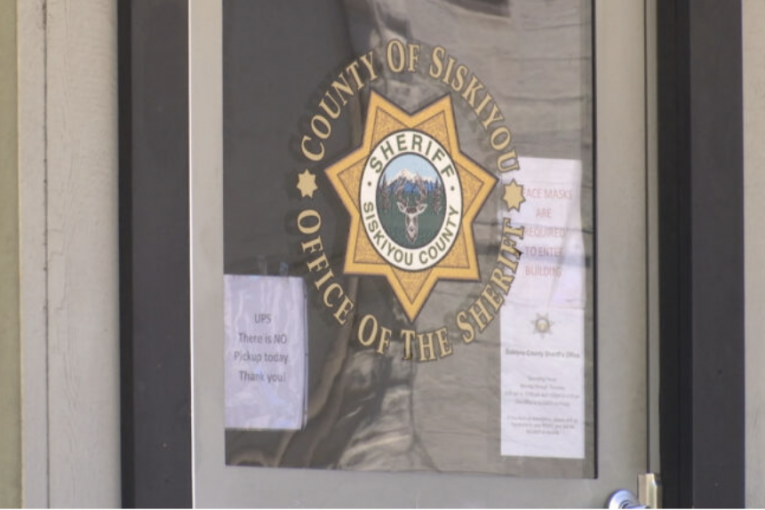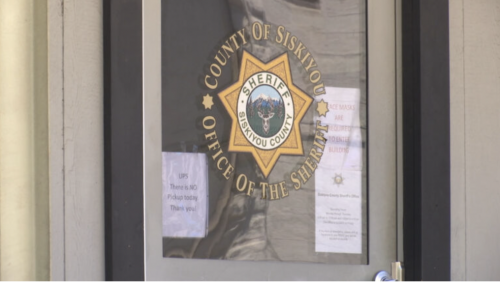

By Cres Vellucci Jr.
Vanguard Sacramento Bureau Chief
SACRAMENTO, CA – Siskiyou County and Sheriff Jeremiah LaRue are attempting to “drive a disfavored racial minority” out of the county by engaging “in a sweeping campaign to harass and intimidate Hmong and other Asian Americans,” according to a class action federal lawsuit brought by the ACLU of Northern California and Asian Law Caucus in U.S. District Court, Eastern District of California.
The lawsuit, filed Aug. 3, charges the county and sheriff are using “widespread racial profiling in traffic stops, restricted access to water” to make “it difficult for Asian American residents to live,” and placing “unlawful liens to dispossess Asian Americans of their land.”
Siskiyou County, a rural northern California county with only about 45,000 people, is mostly white (85 percent) and about 1.6 percent Asian American, mostly Hmong who moved from the Central Valley and Midwest, many with roots in Laos, where they fought with U.S. forces in the Vietnam War.
The 12-claim complaint said the discrimination has its “roots in anti-Asian racism in Siskiyou dating back to the 1800s,” noting “much of the language used in recent years to describe problems supposedly tied to Asian Americans in Siskiyou is disturbingly like the rhetoric used during the shameful history of anti-Chinese policies and practices in the County and the State of California.”
The complaint states, “The County and Sheriff’s attack on Asian Americans is often cloaked under the pretense of enforcing water and cannabis-related laws,” but has “singled out Asian Americans and targeted their neighborhoods at staggeringly disproportionate rates.”
The pleading argues, “the County’s water concerns are not uniquely attributable to its Asian Americans, and cannabis cultivation has existed in the County for decades, long before the more recent arrival of a significant number of Asian Americans.”
According to a story in High Country News, the lawsuit “draws on a yearlong investigation by the ACLU, which examined the county’s troubling policies and their impact on the Asian American community. Data collected from public records, law enforcement reports, formal complaints and incidents recounted in roughly a hundred interviews with Hmong American residents demonstrates the disproportionate impact of the county’s policing.”
The lawsuit alleges a “system of racial profiling and unlawful vehicle stops” that appears to be “designed to drive a disfavored racial minority from the County.”
The “County and Sheriff have singled out Asian Americans and targeted their neighborhoods at staggeringly disproportionate rates,” stopping Asian American drivers 12 times more than their makeup in the county during daylight hours—when a driver’s race is more recognizable—than at night. The ACLU claims Asian Americans are 25 times more likely to be searched than whites.
The High Country News report on the lawsuit notes the “county’s 2021 water restrictions, which banned transportation of water on county roads and curtailed the use of primary water sources near predominantly Asian American neighborhoods,” killed off, said the complaint, “their livestock and gardens, left them unable to fend off wildfires, and resulted in many being forced to leave their homes.” The complaint said water truck drivers had vehicles seized and not returned.
County officials, said High Country News, claimed the action was needed to “eradicate illicit cannabis farms, many of which are concentrated in predominantly Asian American neighborhoods. But based on the department’s own data, repeatedly stopping Asian Americans has done little to achieve its stated aims: Only 2.3 percent of the traffic stops conducted by the sheriff’s department in 2021 resulted in the seizure of any cannabis, for instance.”
“Anti-cannabis activists and government officials have repeatedly denounced the Asian Americans as outsiders, with some using language like ‘invasion’ to describe their presence and saying that the recent changes have ‘infected our community,’” wrote High Country News. 
The complaint argues, “The wholesale characterization of Asian American residents as unsanitary, criminals, or outsiders seeking to destroy the county’s ‘way of life’ is merely another way of expressing racial animus and xenophobia.”
The complaint lists an abundance of statements by county officials used the attack and grow resentment to the Asian American community.
”Former Sheriff Jon Lopey gave interviews for, and inspired news stories framed as: ‘Are Asian gangs showing up to grow marijuana in our neck of the woods?’; ‘Numerous properties have sold at higher than normal prices to individuals with Asian last names for cash,’ Lopey said, linking Hmong ‘with connections to drug cartels,’” according to the pleading.
The ACLU suit noted that former Sheriff Lopey “compared cannabis enforcement in Siskiyou to a war in a foreign country and, when asked about Asian Americans and Hmong people in the County, commented, ‘too bad they didn’t use their ingenuity, intelligence and skills to engage in something lawful,’ as if the whole community were a monolith of criminals.”
Current Sheriff LaRue, the complaint noted, “has made similar statements when asked about Asian Americans in the County,” commenting ‘I just wish they’d contribute better…It’s like a third world country out there and that cannot be okay. Forget about cannabis, it’s just about quality of life and how people are living out there,’” asking the community to “direct our anger at the right people” to help choke out and isolate the community, and to not do business with them.”
Glenn Katon, the litigation director at the Asian Law Caucus, told High Country News the county’s rhetoric about illegal cannabis a smokescreen, arguing “They’re using language that attacks a race of people — code words referring to people as animals. These are ways the county will try and dehumanize Asian Americans to justify the persecution of them. You just don’t get to lower the weight of the law to terrorize the Asian American community in the name of stopping cannabis grows.”
The complaint, filed on behalf of numerous plaintiffs as a class action by the ACLU of Northern California, Asian Law Caucus and Covington & Burling LLP, asks the court to do several things, including:
Granting a judgment that “defendants engaged in discrimination based on race, color, and/or ethnicity and denied Plaintiffs due process and equal protection of the laws in violation of the Fourteenth Amendment of the U.S. Constitution, a judgment pursuant to defendants’ “stops, interrogations, detentions, and/or searches of Plaintiffs Chang and Vang and others similarly situated without probable cause or reasonable, articulable suspicion to believe that they had committed a crime violated the Fourth Amendment guarantee against unreasonable searches and seizures and an order” and “enjoining Defendants from continuing to engage in such race, color, and/or ethnicity-based discrimination as described herein and putting in place safeguards sufficient to ensure that such discrimination does not continue in the future.”
Additionally, the suit asks the court for a permanent injunction “prohibiting defendants from engaging in stops, interrogations, detentions, and/or searches of Plaintiffs and other similarly situated individuals without probable cause or reasonable, articulable suspicion to believe that they have committed a crime,” and a permanent injunction “prohibiting defendants from engaging in racial profiling of Asian American people in stops, interrogations, detentions, and/or searches stemming from traffic stops.” 
Life in the State of Jefferson.
It’s reprehensible what is occurring in Siskiyou County. The lawsuit should also seek major monetary damages, like $1 million.